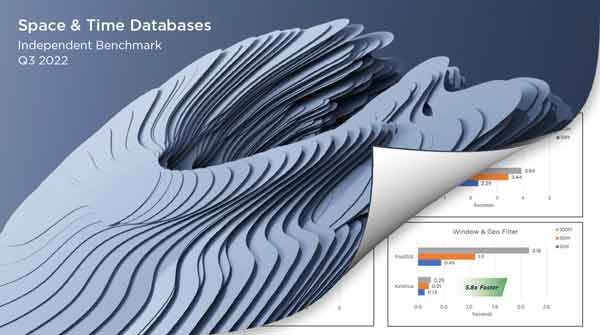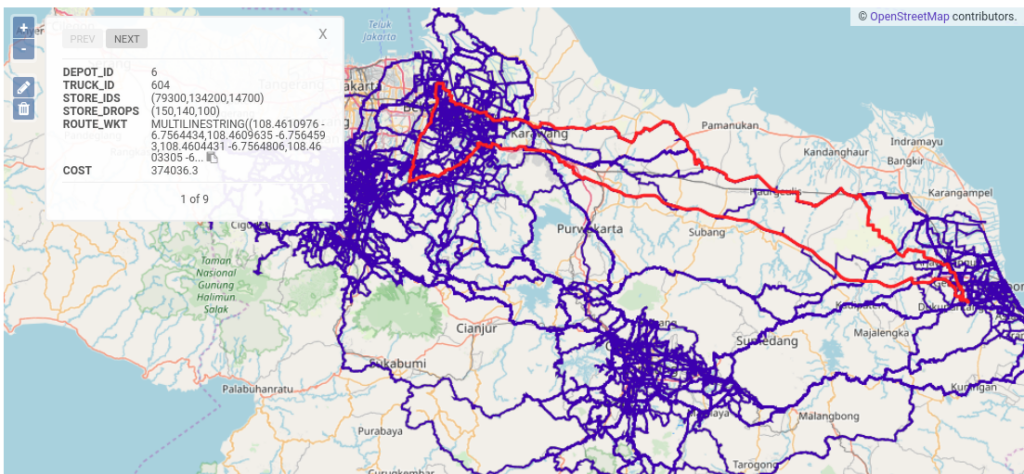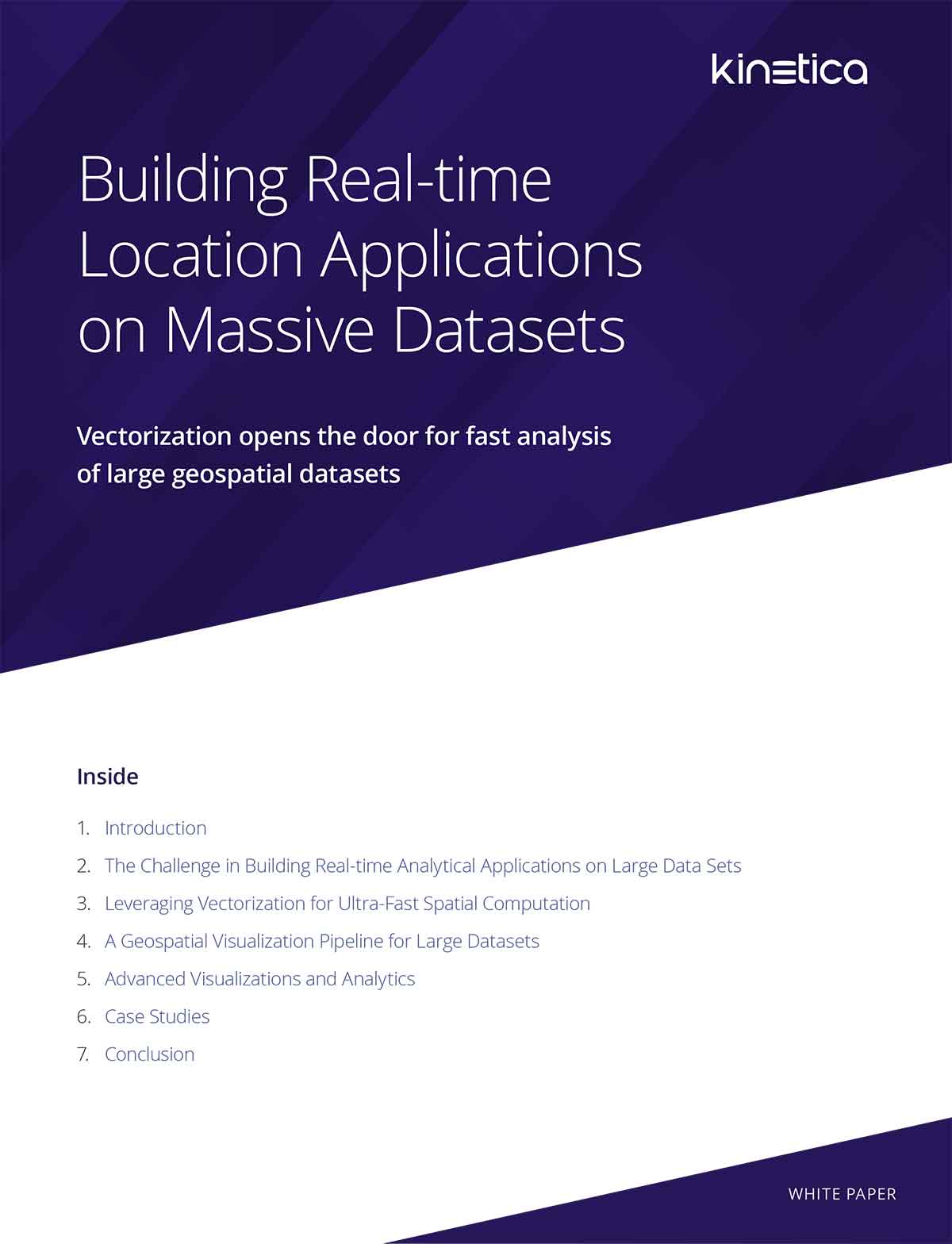Kinetica’s vectorized database opens the door for fast analysis of large and streaming geospatial datasets.
Kinetica was designed from the ground up for analytics and visualization of massive geospatial datasets, capable of catering to the needs of the US military.
Kinetica natively supports points, shapes as WKT, tracks, and labels. There are over 130 geospatial functions that are available through SQL or the REST API. Functions include tools to filter data by area, by track, or custom shape, and perform geospatial joins.
Kinetica is able to create server-side rendered visualizations of geospatial queries. Accelerate rendering times with GPUs to achieve massive scalability with the lowest latency. Plot billions of points on a map, create heat maps, color code by area or generate animations of how data moves in both space and time.
Use Kinetica’s Graph API to create graphs of spatial data. Leverage a suite of graph solvers and matchers to solve common routing challenges such as finding optimal routes, or for infrastructure planning.
“Kinetica outperformed PostGIS in every query and was the only database to pass all feasibility tests across geospatial, time-series, graph, and streaming.”

Generate sophisticated visualizations of large datasets directly on the server
One of the core challenges with displaying spatial information is moving data from the database layer to the visualization layer. Serializing and moving millions to billions of objects from one technology to another takes time.
Kinetica is able to solve this bottleneck by generating geospatial tiles directly on the server through a Web Mapping Service (WMS). WMS tiles are typically used as overlays on top of a map. The type of image tiles returned, the data used to generate the tiles, and the graphical styles in the tiles are specified in the query string of the WMS call.

Kinetica’s graph API enables you to model spatial data as graphs. Then solve difficult questions using SQL queries, or with in-built graph solvers. Outputs from solvers can be piped directly to maps.
What is the shortest path from point A to point B, factoring in speed limits, traffic, and other restrictions? Or figure out the best route to visit multiple destinations. Kinetica comes with a suite of graph solving features to make this easy.
Learn more about Kinetica’s Graph Capabilities »
Kinetica Cloud is free for projects up to 10GB
Kinetica integrates with a wide variety of BI Tools through it’s ODBC/JDBC Connectors. Developers can leverage the REST API and language specific connectors to build rich interactive geospatial applications. Or perform quick analysis using Kinetica’s own built-in BI framework.
Kinetica Geospatial Visualization for Tableau, a brand new extension from Kinetica enables geospatial visualization at virtually unlimited scale. Instead of shipping data up to Tableau for processing, the extension uses Kinetica’s Web Map Service (WMS) endpoint to leverage server-side rendering. This enables visualizations on massive datasets in real time. With every pan and zoom on the map, Kinetica dynamically renders images on your live data source and sends them to the map.
Kinetica comes with Reveal — a web-based BI framework that makes it quick and easy to start exploring geospatial data. Reveal also connects with Kinetica’s geospatial pipeline for advanced mapping and interactive location-based analytics.
Advanced Analytics and Machine Learning with Geospatial Data
Vectorization opens the door for fast analysis of large geospatial datasets
